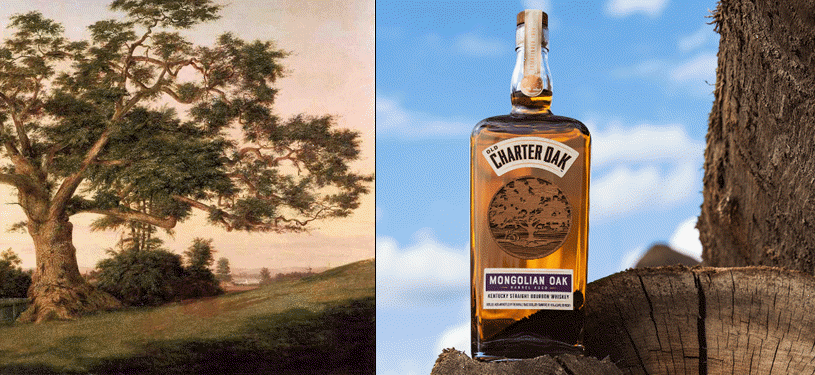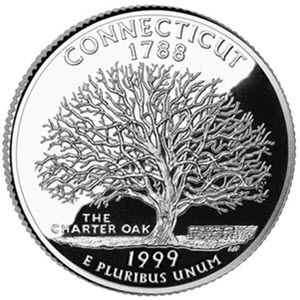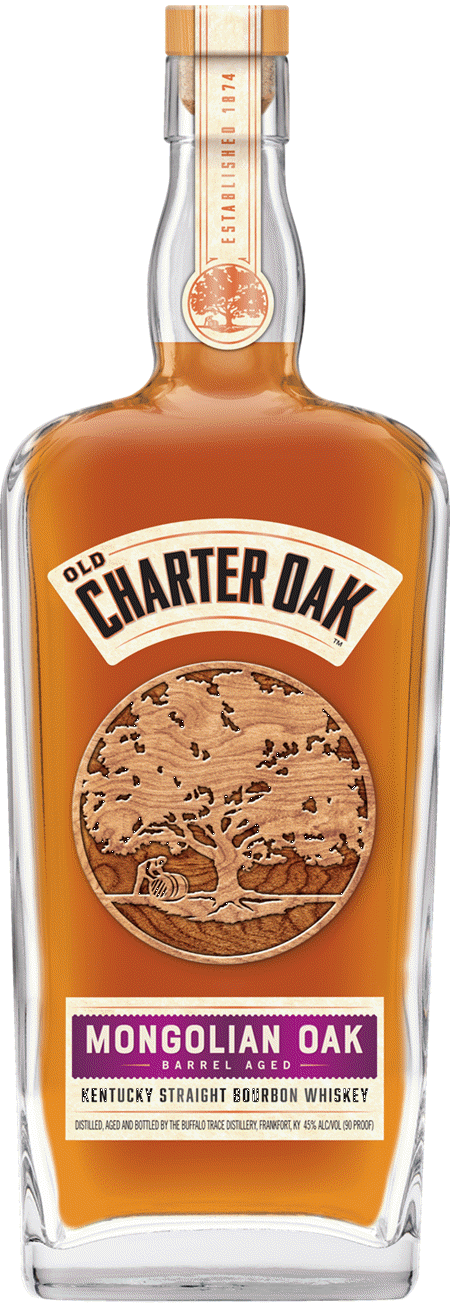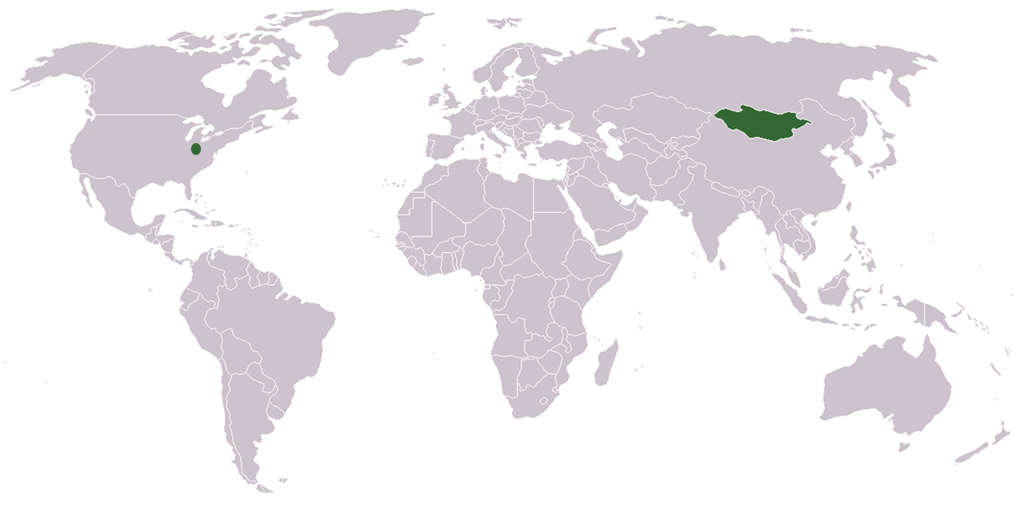
If an oak tree falls in the woods and it’s not used to make bourbon was it really even an oak tree? Well, not an oak tree that’s worth its salt. We’ve all heard the adage that all bourbon is whiskey but not all whiskey is bourbon. Two of the key factors in defining bourbon is that is the distillate has to be at least 51% corn and it has to be aged in charred new American oak barrels. That’s what you’ll often hear but a reading of the fine print shows us that the mostly corn liquor has to be aged in a “charred new oak container.” There’s not actually anything in the law that says it has to be American oak, there’s nothing that says how long it has to stay in that container and there’s nothing that say it has to be a barrel. Does a new charred oak bucket count? Yup. Would it taste any good? Nope. It may be good white dog but it will not taste anything like a bourbon that we’ve all come to expect.
Buffalo Trace Distillery has just announced the release of new line of Kentucky Straight Bourbon Whiskey called Old Charter Oak. In this case ‘new’ is a relative term because this new bourbon has been aged for a full 10 years. The first release of Old Charter Oak was distilled with the Buffalo Trace Mash Bill #1 then skipped the usual American white oak (Quercus alba) barrels and was poured into new charred Mongolian oak (Quercus mongolica) barrels. To help put this in perspective, Mash Bill #1 is also used for Buffalo Trace, Eagle Rare, Benchmark, E.H. Taylor, George T. Stagg and Stagg Jr. bourbons.
Stay Informed: Sign up here for the Distillery Trail free email newsletter and be the first to get all the latest news, trends, job listings and events in your inbox.
Have you ever wondered how barrels made from trees that grew in different countries, climates, and soil would affect the flavors of the whiskey? Buffalo Trace Distillery began wondering this about 15 years ago and took it to a completely new level, resulting in a re-imagined whiskey brand they are calling Old Charter Oak.
Most bourbon whiskey is aged in oak from the American Ozarks, but Buffalo Trace Distillery wondered if barrels made from oak trees grown in China, or Canada, or France would create bourbons with a different taste profile. What about trees grown in different states? Does a barrel produced from a tree grown in Georgia differ from a barrel produced from a tree grown in Oregon? Further, what about red oak, or pin oak, or laurel oak, would barrels produced from these oak species produce bourbons with different taste profiles?
This new Old Charter Oak line is an entire collection of bourbon aged in oak barrels from different oak varietals, and is designed to explore, honor, and celebrate the role of oak in making great whiskey. The oak trees used for this brand will vary by country of origin, or species, or U.S. state. Some barrels are even made from century oaks, 100, 200, or 300 year old oak trees.
“We know, from previous research we’ve done, how important oak is to the final taste profile. The barrel is responsible for about 50% of the flavor profile in bourbon,” stated Buffalo Trace Distillery Master Distiller Harlen Wheatley. “So it only made sense to take that one step further and see how different barrels from different oak tree varieties would taste in comparison to what we think of as ‘traditional’ oak barrels.”
Mongolian Oak – Quercus mongolica
This bourbon is aged for ten years in oak barrels made from trees harvested in East Asia. An oak that takes root where many other trees cannot, Quercus mongolica is heralded for its ability to strengthen the earth beneath it, survive drought, and thrive in full sun. This bourbon honors the fortitude of those proud oaks. From the forests of Mongolia, these mighty oaks became the barrels in which this whiskey matured.
Future Old Charter Oak Barrels Will Vary by State, Country, or Species
All the Old Charter Oak Bourbon series will be released over time, starting with the first release of Mongolian Oak Bourbon this winter. In 2019, there will be two other new releases, from oak trees harvested from other countries. Subsequent releases are planned a few times each year, indefinitely. “As of now, we have bourbon aging for the Old Charter Oak collection set for release now through 2030, but we’ll keep producing more each year for more new whiskeys beyond that,” said Kris Comstock, senior marketing director.

Connecticut Commemorative Quarter featuring The Charter Oak Tree.
The first release in this series is a bourbon aged in barrels from trees grown in Mongolia, which were sourced by Wheatley in 2006, but it was 2008 before the barrels arrived at Buffalo Trace and filled. The Mongolian Oak tastes vastly different from bourbons aged in barrels made from traditional American white oak, although not overpowering, this new whiskey is full bodied. The barrels for this inaugural Old Charter Oak release were made by Independent Stave Company. Future releases will be a mixture of ISC, East Burnstadt Cooperage and Canton Cooperage barrels.
The Old Charter brand dates back to 1874, when Adam and Ben Chapeze created the bourbon, naming it in honor of the Charter Oak tree, a famous symbol of American independence and free spirit, which grew in Connecticut in the 12th or 13th century until it fell in a storm in 1856.
Old Charter vs. Old Charter Oak
Old Charter changed owners a few times, until it was purchased by Buffalo Trace Distillery in 1999. The existing Old Charter Bourbon is still produced by Sazerac and there are no plans to discontinue it. The Old Charter Oak series is an upscale brand extension, much like Buffalo Trace has done with its E.H. Taylor, Jr, line.
The Old Charter Oak Mongolian Oak Kentucky Straight Bourbon Whiskey will be available starting in December 2018. It will be packaged in an upscale package, glass bottle with a cork finish. Each bottle will have an oak medallion on the front depicting the historic Charter Oak tree. The bourbon will be bottled at 90 proof (45% ABV) and have a suggested retail pricing of $69.99. Buffalo Trace says the different oak varieties released over the years will have different price points, all in a similar range.
Old Charter Oak Mongolian Oak Kentucky Straight Bourbon Whiskey

Please help to support Distillery Trail. Sign up for our Newsletter, like us on Facebook and follow us on Twitter.





